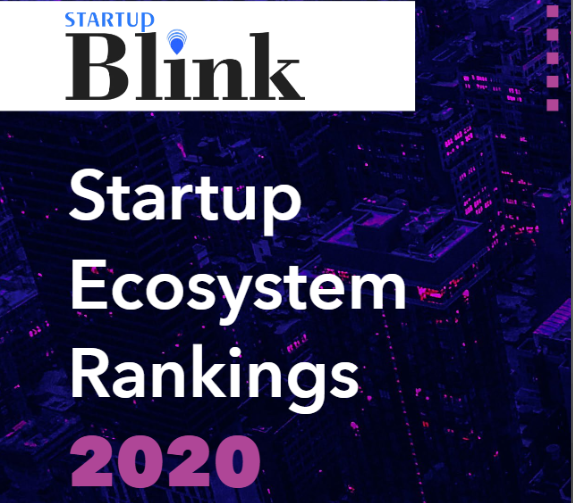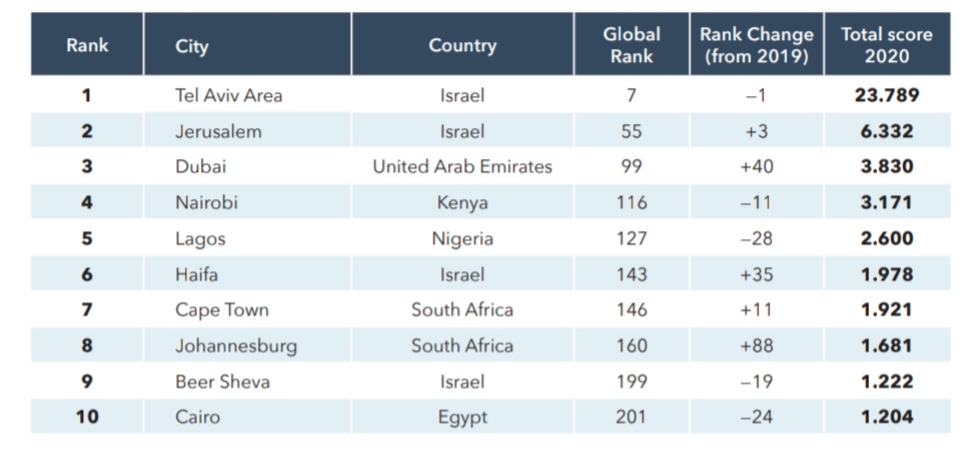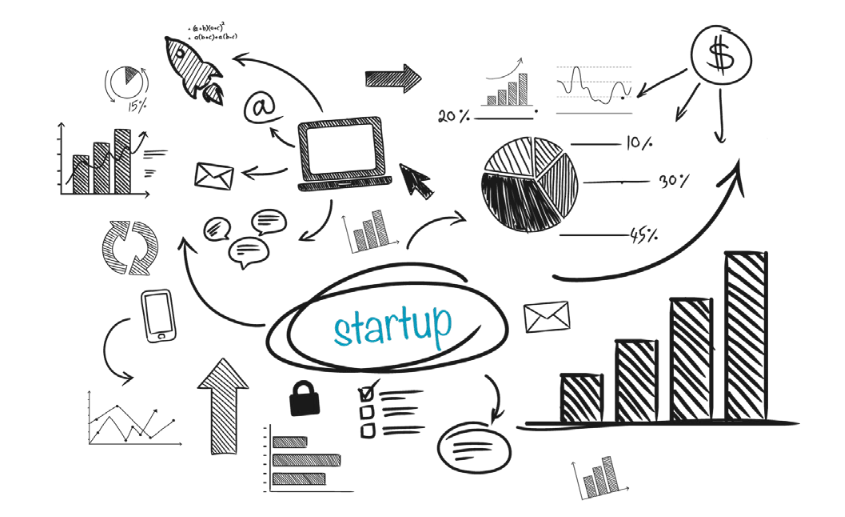Nigeria has dropped 12 places to 68th in Best Startup Ecosystems Ranking, losing its former 3rd Position in Africa to Rwanda, according to StartupBlink 2020 Global Ecosystem Ranking.
The rankings are measured using the data collated from more than 60,000 startups and over 14,000 coworking spaces across the world. The data shows the number of startups (quantity), their quality, and their business environment in the ecosystem – the 3 main metrics used in the rankings.


The report also takes into account global influencers who reside in the various ecosystems under consideration. The impact these influencers have often goes far beyond their local ecosystems and as such, their presence alone could attract recognition and sometimes investment.
With the help of partners like Crunchbase and Nigeria’s Chekkit Technology Corporation, the StartupBlink’s 2020 report ranks the startup ecosystem of 1,000 cities and 100 countries.
Nigeria drops from Africa’s Top 3
Nigeria’s startup ecosystem has been overtaken by Rwanda, losing its top 3 spot in Africa, according to the latest ranking. Last year, Nigeria ranked 56th making it the third-ranked country in Africa just behind South Africa and Kenya.
This year, Rwanda was ranked 65th, displacing Nigeria which ranked 68th as the third-best startup ecosystem. South Africa and Kenya still topped Africa’s ranking but dropped to 52 and 62 respectively on the global scene.
Lagos drops below 100 in city rankings
For city ranking, Lagos lost its top spot in Africa to Nairobi. It fell below the Global best 100, ranking 127th after falling 28 places from the 99th it ranked in 2019.


Nairobi dropped 11 places to 116 but overtook Lagos to hold the top spot in Africa. Cape Town and Johannesburg, however, rose in the rankings to 146th and 160th respectively.
Nigeria now has a total of 7 cities in the ranking with newcomers Kano join the world ranking at 995.
Why Nigeria’s Ranking Dropped?
Examining the criteria used in the ranking, the scores assigned to StartupBlink’s metrics of quantity, quality, and business have changed. The weighted average scores used to calculate the quality and quantity increased while the business score decreased.
For instance, the merits scores for the US in 2019 was 12.29 for quantity, 22.02 for quality, and 9.78 for business score adding up to a total of 44.09. However, this year US quantity score is 19.78, quality score is 99.98, the business score is 3.50 adding up to 123.16.


With Nigeria, the quantity and quality merit score increased significantly driven by the change algorithm used from the year before. The countries quantity score increased from 0.11 to 0.27, while the quality score rose from 0 to 0.11.
However, the business score reduced drastically from 5.89 to a meagre 0.46. Although the merit score for the business environment was reduced, the huge drop in Nigeria’s score was responsible for the fall in rank.
From government policies to infrastructural issues like poor internet speed and connection, a plethora of challenges affecting the countries ecosystem resulted in the low business score. Below are some of the major challenges.
Regulations
Regulations in Nigeria has been one of the major challenges startups face. For example, earlier this year the Lagos state government banned bike-hailing in major areas of the state. The ban basically halted the operation of bike hailing startups like ORide, Max.ng and Gokada who had jointly invested several millions of dollars in the sector.
What this scenario tells us that although the Nigerian startup ecosystem is growing, the regulations and policy by the government is not always friendly to their success.
More 19 hours of Blackout
Nigerians suffer an average of 19 hours of blackout per day. Although the country currently has the capacity to generate 12,522 megawatts (MW) of electric power from existing plants, most days it is only able to generate around 4,000 MW due to lapses in the distribution network.
However, with the recent power deal with siemens, there is a glimmer of hope that the epileptic power sector can be optimized to improve the average number of electricity hours gotten per day.


Poor Internet
Although broadband connectivity across the country is increasing and currently at about 40%, its slow pace of growth has left little or no effect on the quality and speed of internet service in the country.
Possibly with the new reduction of rights of way (RoW) charges, the expansion of broadband connectivity will become faster and translate to better to internet service in the country.
Dollar exchange rate
Over the last few years, the naira has been unable to maintain to the dollar. Although the instability is due to several factors, the continuous fluctuation of the dollar affects international business for business in the ecosystem.
For, Kwese a satellite TV company was forced to shut down after its business model ran into trouble due to local currency devaluation reducing their revenue income. The naira exchange rate is now N386.9 to $1 compared to the N357 it was in April last year.
Small Investments
Compared to last year, funds raised by Nigerian startups in 2020 have been considerably smaller. This is mainly due to the uncertainties caused by the coronavirus pandemic.
There is a good chance that huge investments will resume once the pandemic ends or relaxes considerably but the directions investors will look to invest in may have considerably changed.
In summary, Judging by this ranking and the impact the coronavirus pandemic has had on startups, Nigerian startups within the Nigerian tech ecosystem are facing huge challenges. They will require all stakeholders putting in their quota to reclaim Nigeria’s spot among the top 3 startup ecosystems in the continent.






